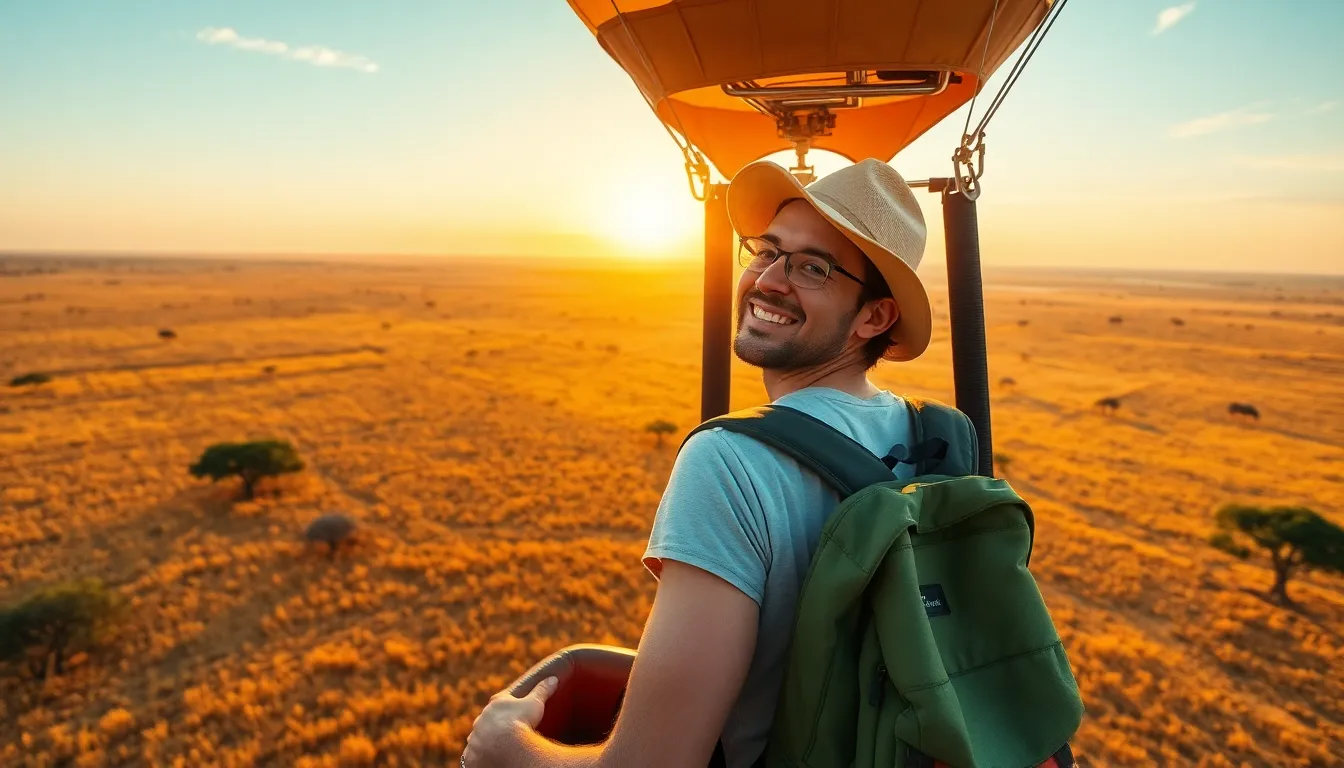In a world where scrolling through social media often replaces real-life adventures, immersive travel experiences are a breath of fresh air—or maybe a gust of wind from a hot air balloon ride over the Serengeti. Forget the typical tourist traps; it’s time to dive headfirst into experiences that’ll make you feel like a local, even if your dance moves scream “tourist.”
Table of Contents
ToggleUnderstanding Immersive Travel Experiences
Immersive travel experiences prioritize authentic interaction with local cultures. These journeys allow travelers to engage deeply with their surroundings.
Definition and Key Features
Immersive travel experiences transform routine trips into engaging adventures. Authenticity, cultural connection, and personal engagement define these journeys. Travelers participate in local traditions, such as cooking classes or community festivals, fostering genuine connections. Active participation distinguishes these experiences from passive tourism. Explorers also discover off-the-beaten-path attractions, enhancing their understanding of a destination. Overall, immersive travel merges enjoyment with cultural immersion.
Importance in Modern Travel
Modern travel emphasizes meaningful connections over superficial experiences. Travelers increasingly seek immersive experiences to foster deeper understanding of cultures. Authentic adventures, like joining guided hikes or supporting local artisans, create lasting memories. These journeys contribute to personal growth and broaden worldviews. Brands promoting immersive travel cater to these evolving preferences, enhancing traveler satisfaction. Engaging with local communities not only enriches the travel experience but also promotes sustainable tourism.
Types of Immersive Travel Experiences

Immersive travel experiences offer unique encounters that connect travelers to the essence of a destination. Different types of these experiences allow for personal engagement and meaningful interactions.
Cultural Immersion
Cultural immersion involves deep connections with local traditions and lifestyles. Travelers participate in activities such as cooking classes or traditional dance lessons. Visiting local markets offers insights into daily life, while festivals showcase unique customs and practices. Engaging with artisans through workshops fosters a greater appreciation for local craftsmanship. These experiences create lasting memories and understanding of various cultures.
Adventure-Based Experiences
Adventure-based experiences focus on thrilling activities that stimulate both the body and mind. Examples include hiking through national parks, white-water rafting, or zip-lining in tropical rainforests. Travelers seeking adrenaline can explore unconventional attractions, such as cave diving or paragliding. These adventures often combine physical challenges with the exploration of stunning natural landscapes, promoting a sense of accomplishment and connection to nature.
Eco-Tourism
Eco-tourism emphasizes sustainable travel practices that support environmental conservation. Travelers engage in activities like wildlife watching or volunteering for conservation projects. Visiting eco-friendly lodges fosters awareness of local ecosystems while minimizing the carbon footprint. Guided nature walks educate participants about flora and fauna, enhancing their overall experience. This form of travel contributes to preserving natural habitats and supporting local communities.
Benefits of Immersive Travel Experiences
Immersive travel experiences provide numerous benefits that enhance both personal fulfillment and connections with local communities.
Personal Growth and Learning
Travelers gain significant insights through immersive experiences, leading to personal growth. Engaging in local traditions facilitates skill development, such as cooking or crafting. Participants often find themselves reshaping perspectives on culture and society. Exposure to new environments encourages adaptability and resilience. Travelers frequently report enhanced problem-solving abilities and increased confidence as they navigate unfamiliar settings. Engaging with local languages fosters better communication skills. Authentic experiences provide opportunities for self-discovery, inspiring travelers to step outside their comfort zones. Each unique interaction adds depth to personal narratives and broadens global awareness.
Connection with Locals
Connecting with locals significantly enriches the travel experience. Immersive travel fosters genuine relationships with community members. Travelers often find themselves welcomed into homes, sharing meals and stories that deepen cultural understanding. Participating in community festivals creates shared memories and bonds. Engaging in local markets encourages interaction, allowing travelers to learn about customs and traditions firsthand. Building these connections cultivates empathy and appreciation for different lifestyles. Locals frequently offer insights that guide travelers to hidden gems, steering them away from crowded tourist spots. Stronger relationships lead to a greater sense of belonging and fulfillment during the journey.
Challenges and Considerations
Travelers pursuing immersive experiences face several challenges that can impact their journeys. Attention to sustainability and cost often becomes essential in this context.
Sustainability Issues
Sustainable practices remain critical for immersive travel experiences. Travelers frequently encounter destinations grappling with over-tourism, leading to environmental degradation. Negative impacts on local ecosystems result when tourism exceeds sustainable limits. Selecting tours that prioritize eco-friendly practices helps mitigate these challenges. Many organizations support conservation efforts and promote responsible travel. Travelers should choose experiences that benefit communities and protect resources. Engaging in activities like volunteering for habitat restoration can contribute positively to local environments.
Accessibility and Cost
Cost considerations often limit access to immersive travel experiences. Authentic adventures frequently involve higher expenses due to specialized local guides and unique activities. Budget constraints may prevent participation in some enriching experiences. While many immersive opportunities exist at varying price points, individuals often feel pressured to balance quality with affordability. Accessibility also poses challenges, especially in remote areas. Travelers can choose experiences that cater to diverse budgets and physical abilities, ensuring inclusivity in immersive travel. Exploring alternative transportation options and off-peak travel can enhance access and reduce costs.
Immersive travel experiences offer a transformative approach to exploring the world. By engaging deeply with local cultures and communities, travelers can create meaningful connections that go beyond typical tourism. These adventures not only enrich personal growth but also foster a greater understanding of diverse lifestyles and environments.
As the travel landscape evolves, prioritizing authenticity and sustainability becomes essential. Travelers are encouraged to seek out unique experiences that promote cultural appreciation and environmental responsibility. Whether it’s through cooking classes or eco-friendly tours, the journey toward immersive travel is one that leads to unforgettable memories and a profound sense of belonging. Embracing this approach can truly redefine what it means to explore the world.



